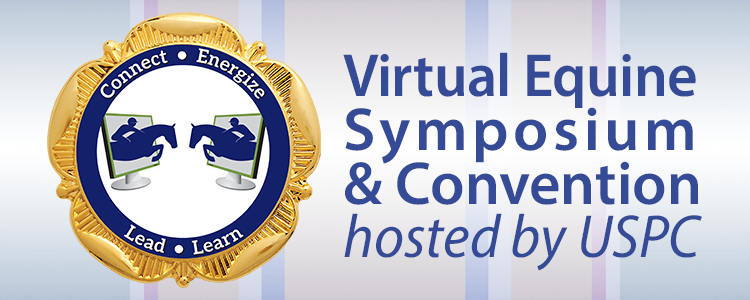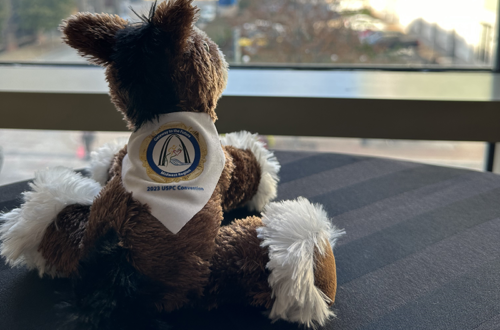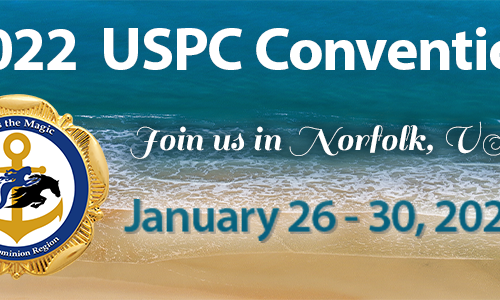USPC Research Project Fair: Expand Your Equine Knowledge!
Have you ever wondered why horses behave a certain way? Are you curious about how different approaches to horse care might affect your horse’s health or performance? Do you have questions about how or why certain horse management practices are preferred over others? Did studying for a recent Pony Club certification spark your interest to learn more about a particular horse sport, aspect of horse care, or riding concept? Are you interested in developing a strategy to learn more about a specific question you have about your horse? If you answered “YES!” to any of these questions, then the Pony Club Research Project Fair is for YOU!!
The Research Project Fair provides Pony Club members of all ages and certification levels the opportunity to explore a topic of interest and present their findings at the USPC Annual Meeting and Equine Symposium in Orlando, Florida, February 4-7, 2016. Research projects can be about any topic related to horses…or Pony Club! This is a great opportunity to learn more about your horse, expand your knowledge on a certain topic to prepare for Quiz and future certifications, and share what you learned with other Pony Club members from across the country! And since the Research Project Fair is held in conjunction with the USPC Annual Meeting and Equine Symposium, you have the opportunity to expand your knowledge even further by participating in educational sessions, obtain hands-on veterinary knowledge in the always popular Anatomy Room, and meet other Pony Club members from across the country.
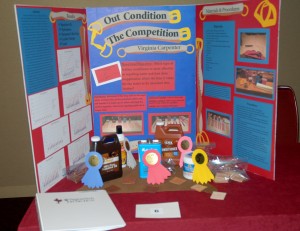
So you’re interested, but what do you have to DO? The first step is to come up with question. For instance, you might notice that your grey pony LOVES to roll right after getting a bath. The first question you might ask yourself is, “why does he ALWAYS roll after a bath?” While that is, in fact, a very good question, a better question for a research project might be, “do grey ponies roll more after getting bathed than bay or chestnut ponies?” Now that you have your basic question, you can develop a “hypothesis” or prediction. For instance, my hypothesis might be, “If grey ponies roll more after baths, it is because it requires more shampoo to get them clean.”
Once you have your research question, you can get right down to testing your assumptions. For my question, my first step would be to observe the behaviors of a bunch of different horses after bathing – grey, bay, chestnut, etc. – and determine a basic rate of rolling. For a population-based analysis such as this, I will need to make sure that I observe an adequate sample size, or overall number, of horses with different coat colors; if I only observe five grey ponies and one bay horse, my results will be likely be skewed toward the behavior of the grey ponies. I might also want to take note of the environment post-bathing. Are horses put in stalls? Stalls with fresh shavings? Dirt paddocks? Grass pastures? These factors, or variables, may play a role in the horses’ post-bathing behavior.
After I have baseline post-bathing rolling data, my next step would be a series of controlled experiments. In my hypothesis, I assume that grey ponies roll more because it requires more shampoo to get them clean. Therefore I would wash a set population of ponies (grey, bay, chestnut, etc.) using the same type and amount of shampoo for each, whether or not the ponies were fully clean. I might even want to control for the amount of water used to wash and rinse and the amount of time spent bathing each horse. I would also make sure to put ponies in a similar environment (stall, dirt paddock, grass pasture) after bathing. And then I would observe behaviors. Does the pony roll? If so, how long after the bath did he/she roll? Did he/she roll on both sides or only one? After all of my “tests,” I would compile my data and determine if there was a difference in post-bath rolling behavior in grey ponies when I used the same amount of shampoo as on different colored ponies. If I found a difference – great! If I didn’t find a difference – it’s okay! That’s part of the process. It doesn’t mean that my hypothesis was wrong; it might just mean that I need to re-evaluate my approach.
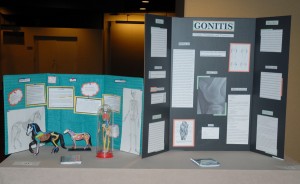
Sharing your findings and results with others is just as important as the actual process of testing your hypothesis. Chances are I’m not the first person on the planet to wonder whether grey ponies roll more than bay ponies. In fact, I’m fairly certain that every Pony Club member who rallies with a grey pony or horse thinks about this every time they are preparing for a rally! So if I find that it’s the amount or type of shampoo used, wouldn’t that be a great piece of information for me to share with other Pony Club members? That’s where the Research Project Fair comes in! Participants in the Research Project Fair convey their process and results through a poster/visual display. During the fair, each participant makes a short (less than 10 minutes) presentation about project and findings to a panel of judges. Judges score the project on the depth of the research question, background research, methodology, analysis of results, and presentation (visual display and oral presentation). Project Fair judges are scientists, veterinarians, and other equine professionals who volunteer their time to Pony Club and enjoy helping youth members hone their scientific method.
The 2016 USPC Research Project Fair will feature the following four categories:
• Individual Experimental Project: Hypothesis-driven project conducted by an individual Pony Club member. Project must incorporate experimental methods to test hypothesis and determine conclusions.
• Group Experimental Project: Hypothesis-driven project conducted by a group of Pony Club members. Project must incorporate experimental methods to test hypothesis and determine conclusions. Groups may range from pairs to an entire Pony Club.
• Individual Literature Review: Non-experimental project in which an individual Pony Club member conducts an in-depth analysis and synthesis of existing literature on a specific equine-related topic.
• Group Literature Review: Non-experimental Project in which a group of Pony Club members (from pairs to an entire Pony Club) conducts an in-depth analysis and synthesis of existing literature on a specific equine-related topic.
Divisions may be divided further by age category.
It is free to enter the Research Project Fair – all you have to do is fill out the entry form, provide a short description of your project (better known as an “abstract”), and provide a signed project approval form by the deadline of January 15, 2016. Entry forms and additional details about the Research Project Fair will be available on the 2016 Annual Meeting and Equine Symposium website by November 1, 2015. Not able to travel to Orlando? No problem! Posters can be submitted to be judged in the “Display Only” category. Planning to make the trip? AWESOME! Research Projects are usually judged on Friday of the Annual Meeting so that participation doesn’t interfere with the educational sessions…and you can spend the rest of the weekend having fun and learning with your Pony Club friends!
For more information, visit HERE

